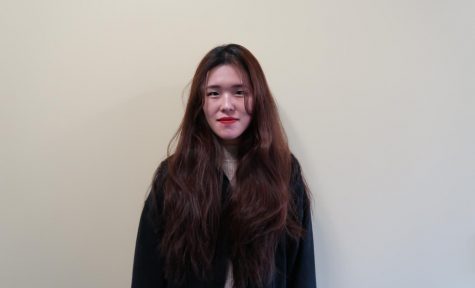Professors discuss diversity on campus
October 11, 2019
Some minority students have expressed their concern with Pitt-Johnstown being a predominantly white school.
Chemistry professor Manisha Nigam, who is from India, said she is aware of the lack of campus diversity, but she said it is understandable.
“Johnstown isn’t a very diverse place, it is not like New York or other larger cities where there is more diversity, so it is understandable that the students who come here are not going to be very diverse.
“(Although predominantly white,) Johnstown is generally a very welcoming and open-minded place, I have never felt like an outsider here.
“(Of my) 21 years in Johnstown, there were only one or two instances of micro-aggression.
“Not to me personally, but I can see that some students might feel biased toward people different from them,” Nigam said.
Although teaching one of the hardest courses, Nigam said she has never been critcized by students based on her ethnicity for the course being difficult.
“I don’t know if they talk about it among themselves, but I have never gotten a feedback on the teaching evaluations from students saying they failed the class because the professor was a foreigner.
“I do tell them that I have an accent, and I tell them it usually takes about a week to get used to it.
“I hope that students feel welcome in my class despite the professor being different from 90% of the population here,” she said.
Nigam said that she has never had a problem with her colleagues, and she said they are curious about her culture and always complimented her food.
However, compared to other faculty members, Nigam said the students might seem a bit reluctant learning about other cultures.
“It’s not necessarily that they are not curious, but they don’t want to sound ignorant.
“There is also a lot of emphasis on political correctness (in this country,) and that makes them hesitant to ask a question that might be interpreted in a wrong way,” said Nigam.
English professor Tuangtip Klinbubpa-Neff, commonly known as Noon, is from Thailand, and said she views diversity on campus in a different way.
“Most people just go to skin color (when they talk about diversity,) but it’s more than that, and stereotyping is never a good idea.
“Although the campus is mostly white, some may have family members who are minorities.
“There are also invisible diversities, like religion and gender. People need to recognize that, too.”
This being her sixth year on campus, Noon said she felt out of place often. Due to the different natures of her culture and American culture, she said she has to prep herself to operate in the American style.
“Because we don’t tend to show that we’re uncomfortable or our negative emotions in my culture, I giggle instead, and some people might interpret it as I don’t care.
“(And) if you think about visibility, we have the mentality that we don’t want to be the target.”
Noon said students should attend more activities on campus.
“The Halloween party we’re having this year is a great way to get exposed to different cultures.
“And Black Action Society needs to be more visible on campus.”
As the only African-American professor on campus, music professor Jeff Webb agrees with Nigam about the lack of diversity among both students and faculty.
According to the Webb, he has been the only African-American professor on campus for a while, and he said that the number of African-American faculty, from what he can remember, was always under five.
“I think it’s the lack of community. (People) always want to bond with people from similar backgrounds, which is difficult here for minority students and faculty.”
Webb said that he has never had any issues with his colleagues regarding diversity, and he said he doesn’t feel out of place on campus.
“The campus is not quite the same as Johnstown. We as faculty have the same job, so to a degree we don’t look at each other than teachers.
“It’s tough (for minority students who feel out of place on campus); students tend to only participate in things brought to them, they need to be more active in reaching out.
“The international festival is (a good event to attend, and) I would say explore outside the wall of (Pitt-Johnstown,) they may find a different comfort zone.
“There is a life outside campus, but many students are not actively looking for anything, they just complain that there is nothing on campus,” Webb said.
Nigam said she thinks the international festival is a good way for students to expose themselves to more diversity, too.
“They should advertise more about the international festival. I always tell my students to attend. I felt obligated to, and I think all professors should talk about it more.
“(I think it would be helpful) to include more clubs like the Black Action Society, and the Student Government Association should be mindful of being inclusive.”
She also suggested a way for students who felt they were out of place on campus to make an effort to meet different people.
“Get out of your comfort zone—when you’re a minority, you (tend) to stay with your minority friends.
“Having breakfast with people from different backgrounds would help you alleviate the loneliness. It doesn’t have to be formal, you’re eating breakfast anyway, why not have it together?
“Reach out to your friends from different cultures. You’ll be more openminded, and feel less that the spotlight is on you.
“This goes to the majority students as well, don’t make it exclusive.”

